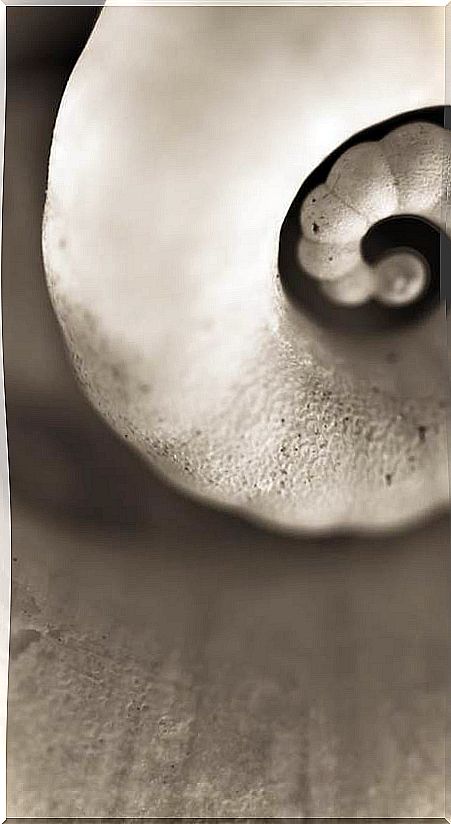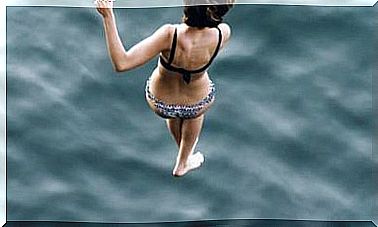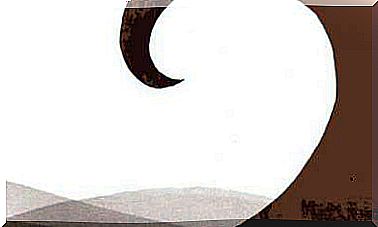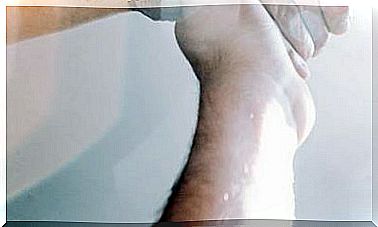Phobias: A Trap That Hides The True Trauma
Suffering a phobia conditions your life. Finding the origin of these fears and expressing the emotions that were repressed at the time helps to overcome them.

Carlos went to therapy presenting an extreme fear of snails. A little animal, in principle, so little frightening for others, for him it was a real nightmare.
Seeing a snail on the ground or climbing a wall gave him instant anxiety. His heart was racing, he was beginning to tremble and he was looking for the fastest way to flee the place.
“I know that I run faster than they do and that they can’t do anything to me, but fear overwhelms me; it paralyzes me, I can’t control it, ” Carlos told me when he spoke to me about them. As he did so, his face showed panic, he couldn’t stop rubbing his hands and he was sweating profusely.
A few years ago, Carlos had inherited the old country house from his parents. However, his phobia towards snails prevented him from going there to spend his days off or his vacations.
“ Ramón, ” he told me in one of the sessions, “ the last time I went there, I couldn’t get out of the car, I was thinking about snails in the garden and I couldn’t bear it, I couldn’t go through where they were drooling, it’s just thinking about the drool and make me dizzy. Also, -he continued telling me- I thought that inside the house I would not be safe, snails can climb and what would I do at night? I couldn’t sleep. So I turned around and went back to town.
On the other hand, Carlos told me that he also avoided leaving his house, in the heart of the city and away from any garden, when it rained. He wanted to avoid, at all costs, bumping into a snail.
As we always do in consultation, we begin to work to understand and heal the origin of the phobia.
In the first interviews, Carlos introduced an authoritarian and strict father who did not hesitate to use violence to impose discipline. Screaming and slapping accompanied Carlos daily throughout his childhood. At times, his father’s fury was unleashed so uncontrollably that the boy, on several occasions, had come to fear for his life.
In one of the sessions, remembering one of these extreme beatings, Carlos saw how his father held him by the arm while beating him over and over again, for long minutes, without rest, without giving him any opportunity to escape. Even at a time when it occurred to the child to protest, the blows increased in intensity, so that the only way out the child had to survive was to adopt a submissive and passive attitude: shut up and hold on.
Just in the moment of most virulence of the beating, while Carlos was bleeding from a gap that his father had made with the belt buckle in one eyebrow, his eyes, partly veiled, fixed on a snail that was climbing slowly up the wall. The boy contemplated, for long seconds, the snail while his father beat him incessantly. Through the blood, he saw him rise impassively, unaware of his pain, drooling, little by little, without rest, just as his father’s blows fell on him.
Carlos, in those moments of extreme anguish, without the possibility of being able to express his pain or his horror, was forced to keep quiet and keep all his impotence and anger within himself. However, their emotions were not completely hidden, they looked for a small escape valve to be able to express themselves and to, in some way, alleviate part of the repression suffered and remind Carlos of the damage received.
The phobia that Carlos developed for years towards snails was the way his unconscious found to be able to give voice, albeit indirectly, to the damage received.
When he was able to recognize the origin of his phobia and expressed all the repressed emotions that he felt as a child, the irrational fear subsided.
Some time after the conclusion of his therapy, Carlos sent me several photographs of snails that he had taken in his country house, to which he finally went every time he had a day off. In one of the photos, you could see how Carlos was smiling while holding a snail in the palm of his hand.
Phobia is a kind of intermediate solution, a lesser evil, which allows us to alleviate some of the emotional pressure caused by repressed emotions in childhood, but which, on the contrary, hides from us the true origin of our suffering. As we find the original motive and reposition the felt emotions, the phobia will subside naturally.









